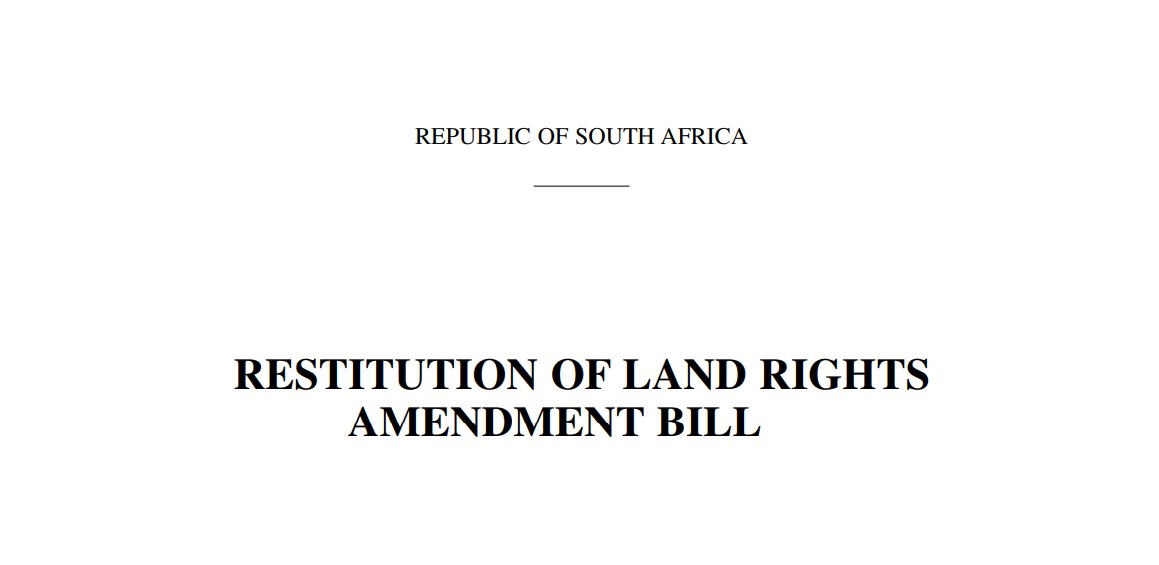The Constitutional Court held that in the case of Land Access Movement of South Africa and others v Chairperson of the National Council of Provinces and Other 2016 (10) BCLR 1277 (CC) that the Restitution of Land Rights Amendment Act 15 of 2014 (the “Amendment Act”) is unconstitutional.
Section 25(5) of the Constitution of the Republic of South Africa, 1996 (the “Constitution”) provides that the State must take reasonable legislative and other measures, within its available resources, to foster conditions which enable citizens to gain access to land on an equitable basis. Section 25(7) provides that any person or community disposed of property after 19 June 1913 as a result of past racially discriminatory laws or practices are entitled to either restitution of the property or equitable redress. In terms of such constitutional entitlement the Restitution of Land Rights Act No. 22 of 1994 (the “Act”) was enacted. The Act provides for a procedure for land claims and the establishment of a Land Claims Commission and Land Claims Court.
The Act originally provided that claims for restitution of land had to be lodged by no later than 31 December 1998. However, by such date not all those who were entitled to lodge a claim had timeously done so. The Amendment Act intended to reopen the time period for lodgement of claims with the relevant amendments. The Amendment Act purported to extend the time period for lodgement of claims until 30 June 2019.
On 28 July 2016, the Constitution Court that ruled the Amendment Act is unconstitutional. The applicants’ substantive concern was that by opening the window for lodgement of claims, that the claimants who filed their claims by 31 December 1998 but whose claims remain unresolved, would be prejudiced. The applicants in the matter approached the Constitution Court directly and it was contended that the Amendment Act was invalid for the failure by the National Council of Provinces and some or all of the Provincial Legislatures to facilitate adequate public participation as required by section 72(1)(a) and 118(1) of the Constitution, prior to passing of the Amendment Act. In the alternative, the various applicants sought an order declaring that section 6(1)(g) inserted in the Act by the Amendment Act as unconstitutional and invalid.
The addition to the Act by the Amendment Act in terms of Section 6(1)(g) proposed that priority was to be given to claims submitted by no later than 31 December 1998 which were not finalized by the date of the commencement of the Amendment Act. The applicants contended that the words “ensure priority is given” were capable of various interpretations. As a result, it would give the administrative officials the obligation of giving it meaning. This discretion would result in different and conflicting interpretations with regards to the different claims. The applicants argued that the potential conflict was in contradiction with the doctrine against vagueness of law which requires that laws be capable of interpretation in a clear and accessible manner.
The Constitutional Court held that the National Council of Provinces’ public participation process was unreasonable and thus constitutionally invalid. Accordingly, the Court did not further consider the possible invalidity of section 6(1)(g). As a result the Restitution of Land Rights Amendment Act was declared invalid with effect of the date of the judgment. Pending the re-enactment by Parliament of another Act reopening the period of lodgement, the Chief Land Claims Commissioner is interdicted from processing in any manner whosoever claims lodged from 1 July 2014 (the date of commencement of the Amendment Act). However, such aforementioned interdict does not apply to the receipt and acknowledgment of land claims contemplated in the Act. Furthermore, should the processing of all claims lodged by 31 December 1998 be finalised before the re-enactment of the Act which Parliament is to implement, the Chief Land Claims Commissioner may process land claims lodged from 1 July 2014. Should Parliament not re-enact the Act as contemplated within 24 months from date of the Court order, the Chief Land Claims Commissioner must apply to the Constitutional Court within 2 months after the period has lapsed for an appropriate order on the processing of land claims lodged from 1 July 2014.
This newsflash has been prepared for information purposes only and does not constitute legal advice, or a legal opinion, the practical application of the provisions of this newsflash will vary depending on the facts of each case.

